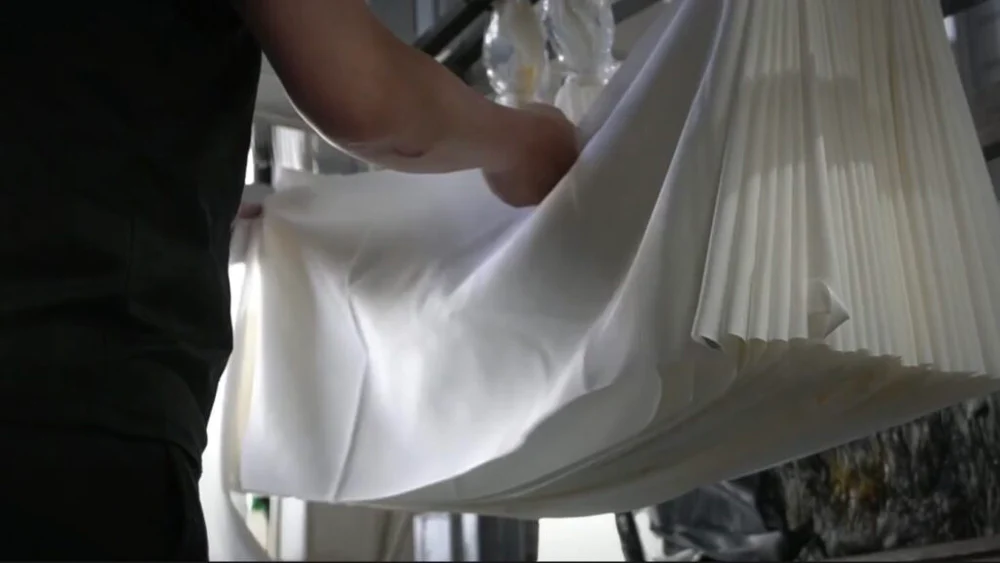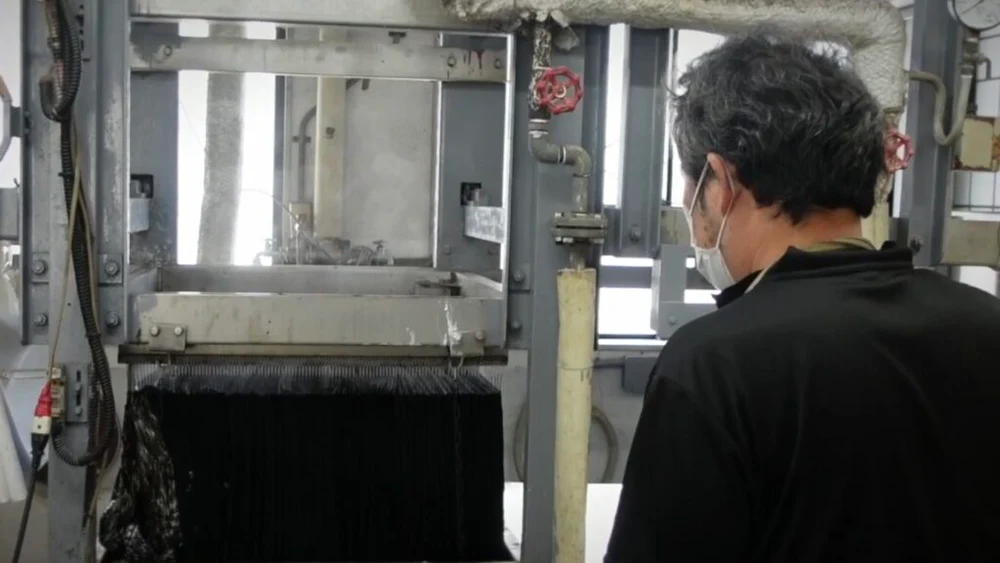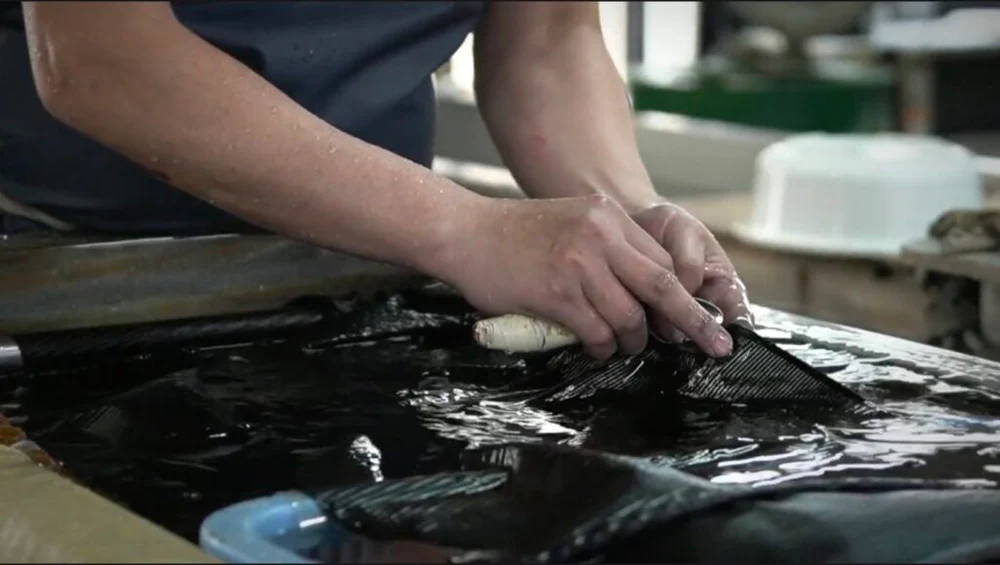Making Process
Framing
Hanging it on a frame with needles to avoid uneven coloration and wrinkling.

Dyeing black
Main process of dyeing kimono black. To ensure that the color does not become uneven in the cauldron, which is set at a high temperature. it is pulled out of the cauldron and checked several times for the perfect coloring.

Washing with water (without using soap)
Remove excess dye and remove the crest glue that was placed on the both sides.

You can watch the making process on YouTube!
What is Kyo-Kuromontsuki Zome?
Kyo Kuromontsuki Zome is a dyed fabric utilizing the traditional technique of dyeing clothing in black (especially Kimono). It is a collective term for two techniques: the silk dyeing technique to dye fabrics black and the technique to draw family crests (Being designated as a national traditional craft in 1979). In Japan, these clothes are recognized as a “Kurotomesode / 黒留袖” that are worn for funerals and weddings and most of them are made with Kyo Kuromontsuki Zome. The characteristic of Kyo Kuromontsuki Zome is the texture and thickness of black. It has been a Japanese formal wear for long years, it is said that the deepness of black represents the highness of quality and value. Wearing blacker Kurotomesode was a symbol for person of higher position. Because of this, the quality of black dyeing has been refined and the technique has been handed down to the present day.

Kyo-Kuromontsuki Zome was Well known for Katana Proof Clothes in the past
The history of Kyo Kuromontsuki Zome dates back to the Heian period (794-1185), and the prototype have been created around the 10th century. It is recorded that it was around the 17th century (Edo period: 1603-1867) when the technique of the production and its products widely spread as the current Kyo Kuromontsuki Zome. It was mainly loved by samurai at the time. The biggest reason why it spread amongst samurai was its strongness and smoothness of the fabric. The ingredients in black dyeing permeate the fabric, transforming it into a strong fabric. Due to this effectiveness of dying process, the haori (short Japanese overgarent) and kimonos dyed in black become so sturdy that it could not be pierced by a katana. The sturdiness of this fabric was widely known and loved by warriors as a self-defense clothes.
Re-wear that connects Clothes and Traditional Techniques to the Sustainable Future
Have you ever heard of a service called Re-wear? This is a service provided by Kyoto Montsuki Co., Ltd. They can re-dye unworn or stained clothes in black and transform them into black by utilizing the black dyeing technique. Re-Wear can handle a wide range of materials, genres, and products, including cotton, linen, wool, stretch denim, canvas, and stitching. In the changes in circumstances and times, the kimono industry, including Kyoto black dyeing, is currently in a difficult situation due to the declining popularity of kimonos and a drop in inbound sales. However, through the flexible ideas and actions of craftsmen and the staff, they are re-dyeing and re-wearing a lot of clothes. In order to continue the tradition of Kyo Kuromontsuki Zome, they use the technique in the different field and this sustainable way of reusing clothes should be received more attention from the world.
KUROZOME REWEAR FROM KYOTO「K」, a service of Kyoto Montsuki Co., Ltd. can handle a variety of products including T-shirts, shirts, trench coats, skirts, denim, stretch denim, hats, and more. Your favorite clothes, the ones in the closet and the ones you were going to throw away because they were stained too badly. They are also able to come back to life by the black dyeing service.
Unfortunately, this Re-wear service has only been available in Japan at the moment. But this service will be opened to foreign customers in the near future. When the time comes, Suigenkyo will be there for all of you to offer this service on behalf of them!
